Crusader Kings 3 sticks to what it does best
Intrigue, murder and shoe fetishes.
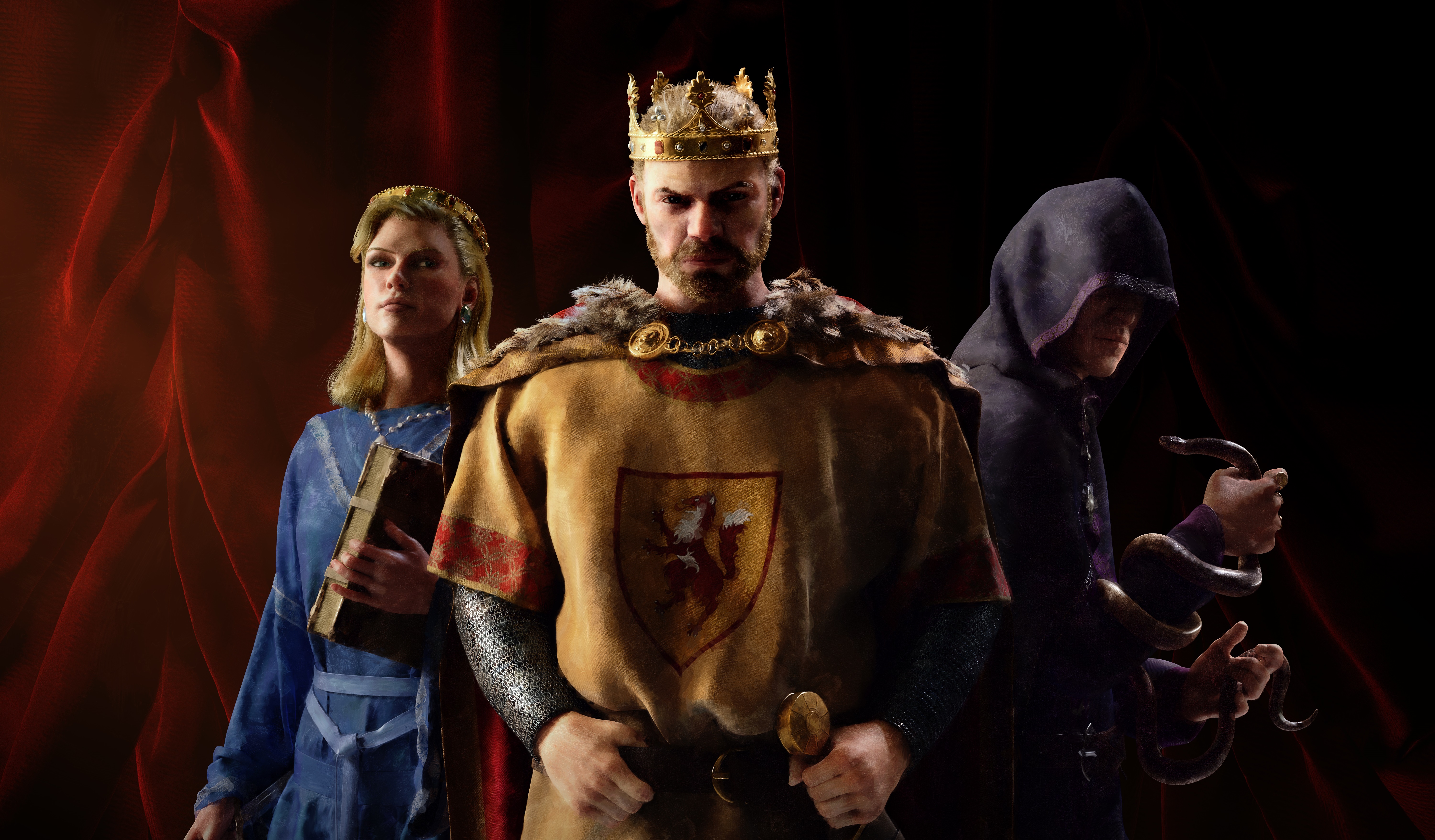
History probably won't remember my tenure as Alba's monarch fondly. A poisoned brother, nieces and nephews fed to woodland critters, political rivals turned into 'art' in my torture chamber—and let's not go into all the STDs or that time I wanted to have sex with a shoe. Yeah, this is definitely Crusader Kings.
After racking up a litany of misdeeds that would be far too long—and nauseating—to list here, I can report that Crusader Kings 3 still lets you be an absolute monster. You can be lovely, chivalrous and pious, too, but it's not as fun to read about. Indeed, almost everything you can say about its predecessor is true here. Crusading veterans will find the medieval world a familiar sandbox, but it doesn't feel like a simple repeat.
Crusader Kings 3 starts where the last game left off, at least in terms of its systems. Almost everything that was introduced through eight years of DLC is present again, but instead of being slotted in piecemeal over a multitude of updates, this time everything's been designed holistically and thus fits together a lot more neatly. It also does a better job of explaining these complicated systems and nudging you down the most engaging paths.
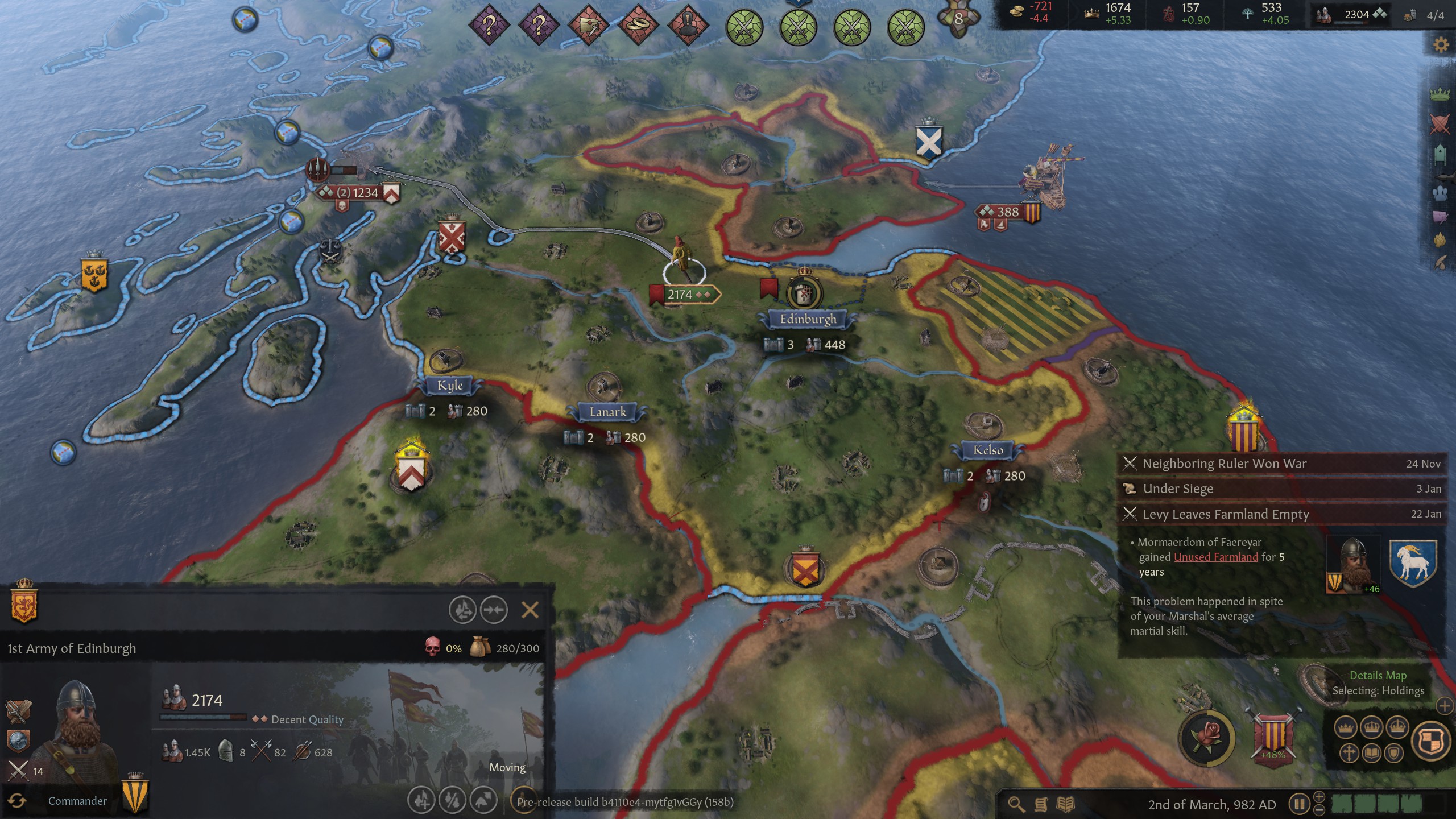
At the time of writing, it's still months away from completion, but already the new player experience is light years ahead of the old one. The tutorial is too wordy and a bit on the dull side, but elsewhere there's been a clear effort made to ease new lords and ladies into the murky world of blue blood politics.
If you've got a tooltip fetish, you'll be well taken care of here. They're generally clear and concise, but there are also nested tooltips that let you explore more concepts and get important context, if you need it, organically filling your brain with all the facts a ruler needs. There's an encyclopedia, too, which lets you take another look at all the tutorials or brush up on whatever system you're confused about, as well as a suggestion feature that lists potential actions that you can undertake.
The best way to learn is still jumping in and making a mess of things. Starting small, as a minor noble, will let you dip your toes in without taking on too much responsibility, and this time there's still a lot that you can do even if you're a nobody, comparatively. This is largely down to the lifestyle system, which weaves its way into every facet of Crusader Kings 3, giving it most of its RPG clout.
Every character, whether you're playing them or not, has a lifestyle. In RPG parlance, they're classes. You can pick whatever you want, but you'll get a bonus if your choice lines up with their childhood experiences. If your ruler was a rambunctious little hellion as a youth, you might be best served picking the martial lifestyle; though an entirely different one might be even more beneficial depending on the state of your dynasty.
Keep up to date with the most important stories and the best deals, as picked by the PC Gamer team.
Each lifestyle is further split into three trees, which in turn have an associated focus that gives you additional thematic bonuses as long as it's selected. In keeping with Crusader Kings 3's 'anything goes' attitude, you don't have to pick the focus connected to the tree you're progressing down, and you can change trees, foci and even lifestyles whenever you want. This doesn't mean that you can just recreate your character. They are still the sum of their experiences and relationships, good and bad, and that history can't be rewritten. It's more like finding a new hobby.
A lot of the perks you get from the lifestyle trees are pretty forgettable, like shaving 20 percent off the cost of a casus belli. Others, however, give you entirely new abilities, or huge bonuses that can mean the difference between dying of gout at 50 and being a beefcake warrior at 70. Together, they flesh out your ruler, making them an original, specialised character that you've designed over decades.
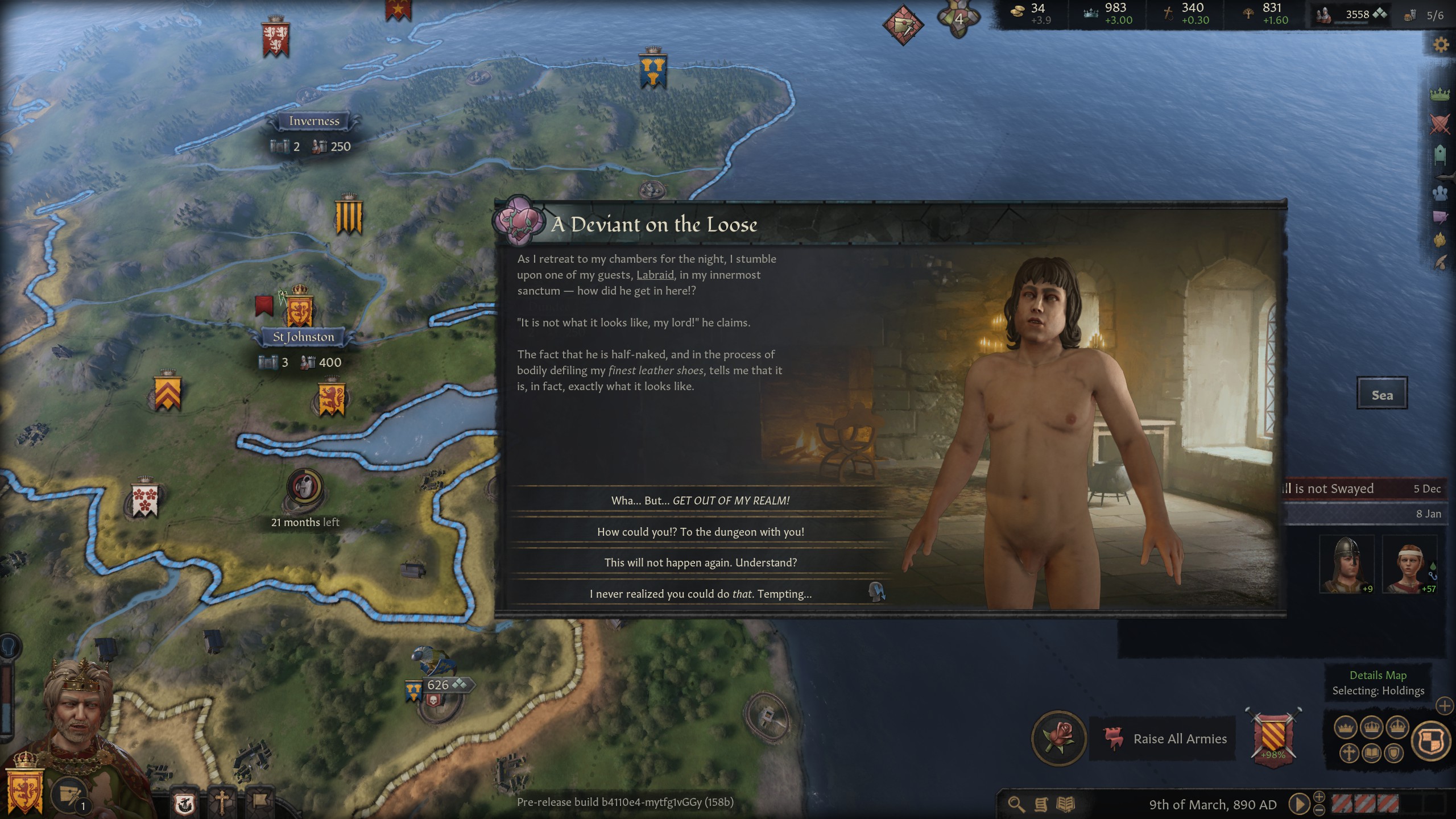
Whatever you pick, the game adapts. If you're all about guile and intrigue, you'll be making a lot of shady deals and sneaking around, but at the same time you'll be coming across all sorts of emergent events that take your proclivities into account. The level of reactivity has been a genuine surprise, giving each lifestyle a distinct narrative flavour that's further enhanced by the choices you make and random chance.
I'm rather partial to the intrigue lifestyles because they really let you make the most of Crusader Kings 3's system of schemes and hooks. Schemes, known as plots in the last game, run the gamut from nurturing a friendship to planning a murder. They move forward step by step, and every month the game makes a new calculation based on you and your agents' skill versus your target's resistance. At the tenth step, you'll try to execute the scheme. If you fail but don't get caught, it starts again.
To help you with your schemes, you can gather up secrets about your fellow nobles and courtiers. Maybe they're a heretic, having an affair or hiding a huge roster of illegitimate bastards. These secrets give you a hook that you can use to exploit a character. You can use them to blackmail someone for cash or influence a noble to back your candidate in an election. As an intrigue-focused character, you can really play the puppet master, rooting through dirty laundry and threatening to air it unless you get your way.
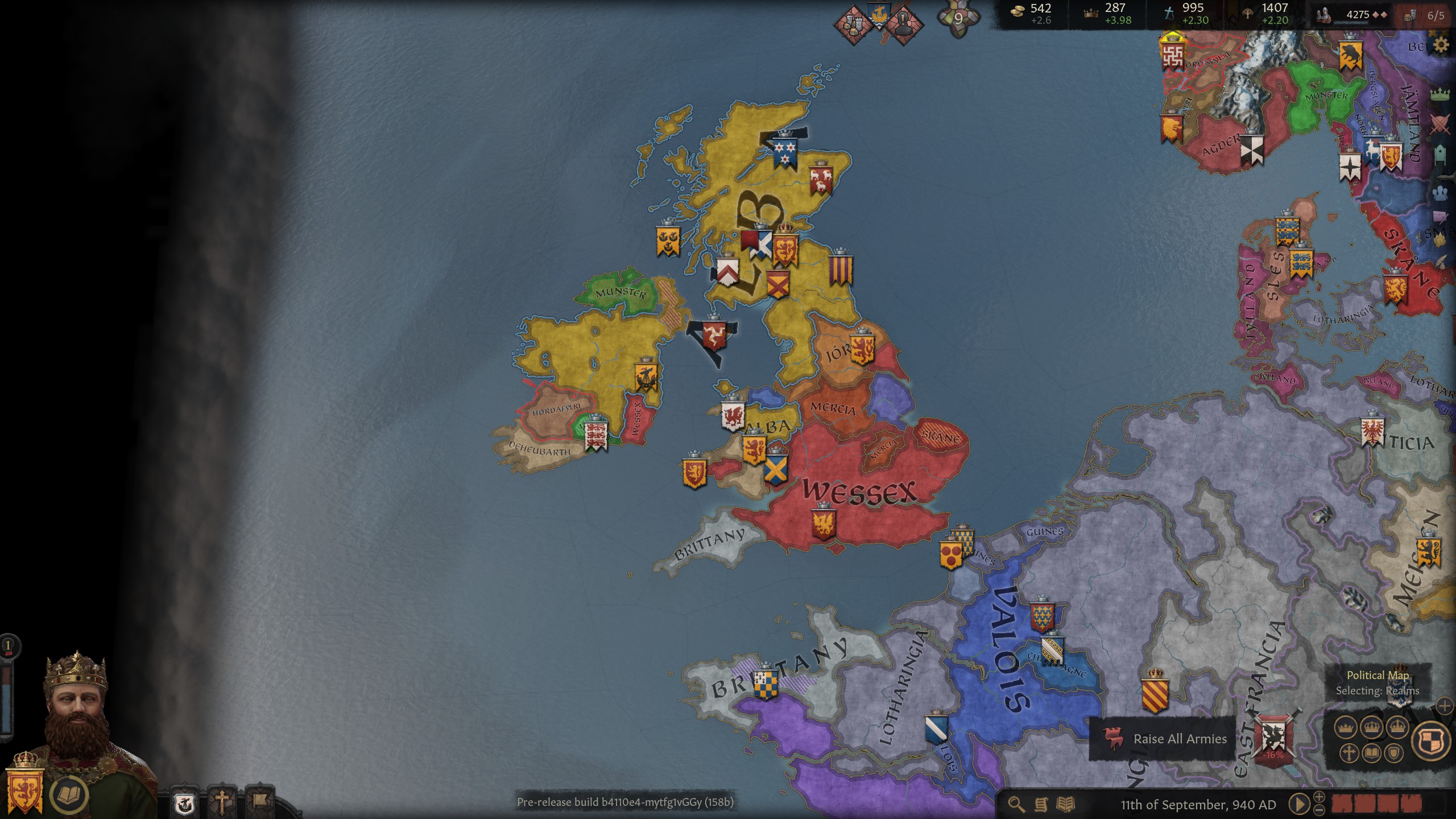
My greatest victory wasn't on the battlefield—it was when I made my ten biggest rivals endorse my feckless son as the next in line to the throne, all because they were stepping out on their spouses. Now that's power. But it also comes at a cost. There's everyone hating you, of course, but it also might have an impact on your emotional and mental state.
Stress encourages you to embrace your character and act appropriately. A content and compassionate ruler would be unlikely to shame people or use an error in judgement for blackmail, so picking those options generates stress. The more stressed you become, the closer you get to a breakdown. You'll get chances to alleviate the stress, however, but the cure can sometimes be just as bad as the ailment. Solutions include booze, brothels or flagellation. Or you might just take up jogging.
I wanted everyone to be happy, which is why my rulers slept with everything under the sun. That meant I was being blackmailed a lot, but it doesn't have to be that way. How people perceive everything from affairs to eating human flesh depends on their culture's faith, and that can be customised. When, as the leader of a Norse dynasty, I'd had enough of all the shame, I reformed our faith and selected a new set of rules and beliefs. I made gender and sexuality inconsequential, normalised affairs and, to top it all off, made myself head of the new church. This isn't something you'll want to do on a whim, given the cost and potential risk of holy wars, but it felt good to make my Vikings a bit less puritanical.
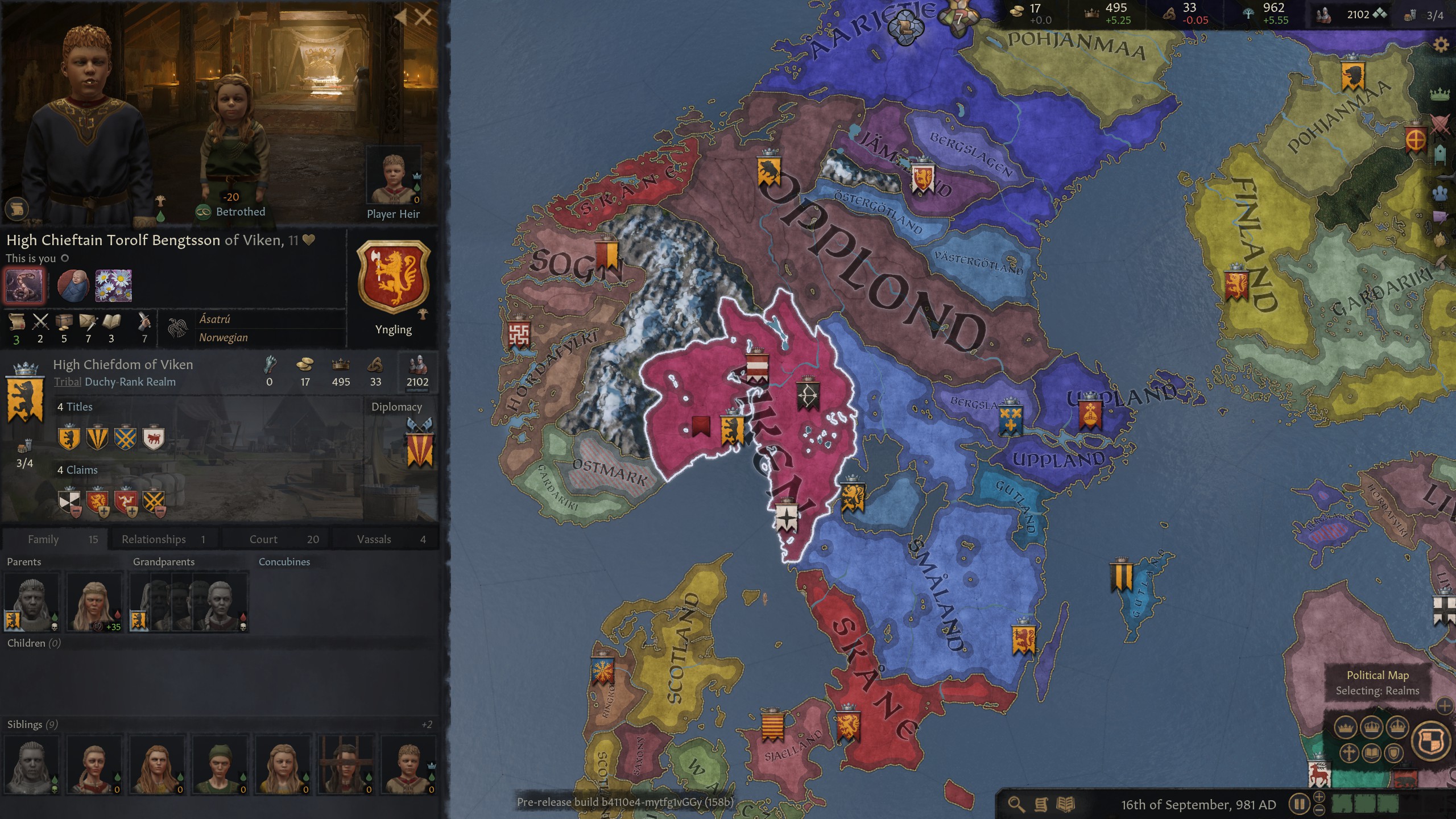
There's a lot of this big picture customisation. Dynasties can level up, just like your ruler, though it's a slower process with fewer choices. Unlike fleeting nobles, your dynasty keeps on trucking, so the choices do end up having a greater impact, or at least a long-term one, but can hardly remember any specific bonuses. They're a bit more generic than the traits and perks that make up Crusader Kings 3's characters.
Instead of being these monolithic extended families, dynasties are now split up into houses. Initially your dynasty might start off with just a single house, but over time, as your bloodline spreads out, members will start to found new houses, giving them a lot more autonomy. After a couple hundred years, I noticed several appearing, and while they didn't dramatically change my plans or add any massive wrinkles, I did appreciate the additional dynamism. They were founded by characters with big ambitions, and I enjoyed watching them try to carve out their own realms. They also contributed to the greater dynasty's renown, as well as being available to be called up during times of war.
Monarchs love a good scrap, so I've seen a lot of war. I could probably do with a bit less of it, honestly, because the roleplaying and politicking is still the most compelling part of the game. The good news is that it looks like Paradox has cut down on a lot of the faffing around you need to do to conclude these bloody struggles. The map is larger and more spread out, with baronies now appearing on the map rather than just being hidden away in menus, but you only have to worry about fortified targets.
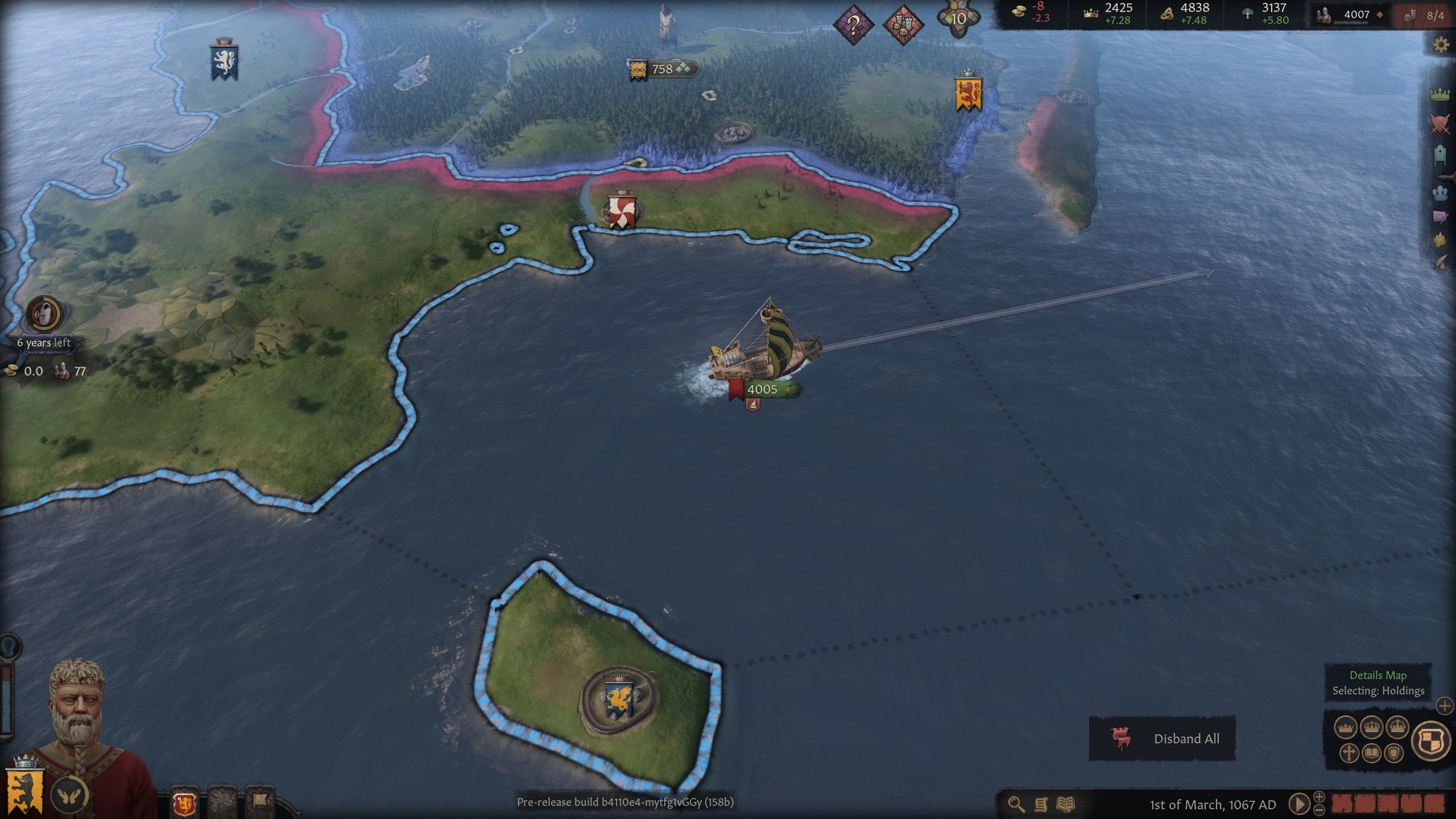
Instead of besieging every holding to conquer a county, you can now just head straight for the castles, forts or whatever defensive buildings the ruler has erected. Other holdings, like towns and churches, get conquered automatically when you take the castle. Generally, there's just a lot less tidying up to do.
Recruiting and moving armies is simpler, too. When you raise the levies—your crappy peasant troops—they all appear automatically at the rally point instead of being spread out all over your empire. This does mean you can't thwart an enemy by picking off all their tiny levy armies before they can unite, but it's a sacrifice I've been more than happy to make for the greatly improved pace. Even better, there are no naval levies. Instead of spending time and cash building armadas, ships now just automatically appear when you order an army to traverse some water.
If the hint of streamlining makes you worried, don't fret too much. You can still get hands-on with your armies, building specialised man-at-arms squads made up of both generic and culture-specific units, as well as siege engines, or recruiting knights who are all gifted with preternatural fighting skills. These knights are also members of your court, so they can become embroiled in intrigue and add yet more flavour to your realm.
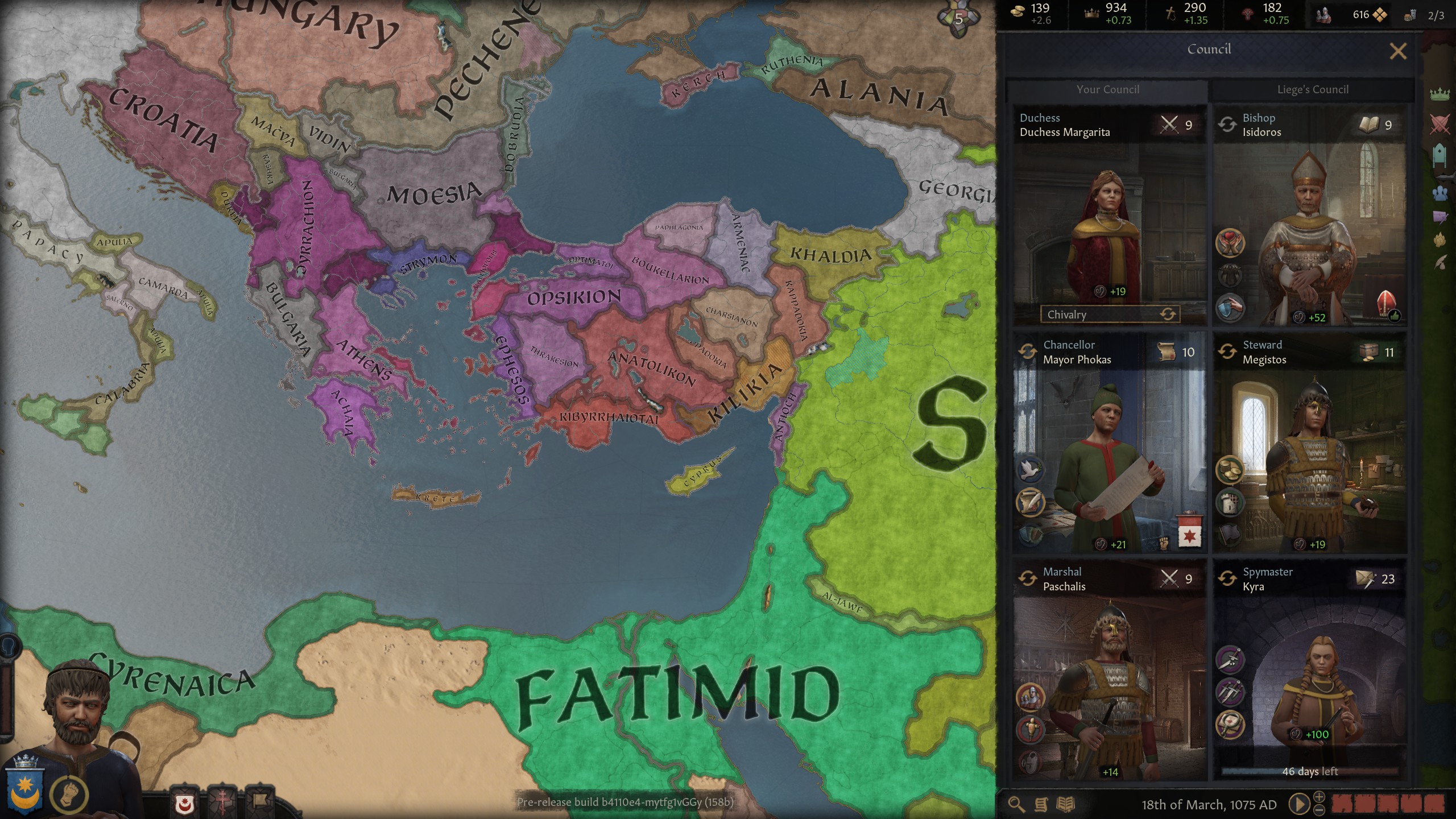
It always comes back to the roleplaying and dynastic drama, and that's where Crusader Kings 3 thrives. It's more comfortable as an RPG than its predecessor, and it's the roleplaying elements that tie everything together. I was constantly putting out fires and getting tangled up in another soap opera episode, but I always had this clear impression of who my character was to grab onto and guide my decisions.
As the follow-up to one of the most novel strategy games around, I was maybe hoping for something a bit bolder and less iterative, but I've also spent the better part of a week utterly obsessed with my medieval court. It's relentlessly engaging, and while many of the improvements are subtle, they contribute to game that feels simultaneously larger and easier to grasp. It makes a convincing argument for sticking to what it knows, and perhaps the best indication that it's on the right track is that I don't want to go back to Crusader Kings 2.

Fraser is the UK online editor and has actually met The Internet in person. With over a decade of experience, he's been around the block a few times, serving as a freelancer, news editor and prolific reviewer. Strategy games have been a 30-year-long obsession, from tiny RTSs to sprawling political sims, and he never turns down the chance to rave about Total War or Crusader Kings. He's also been known to set up shop in the latest MMO and likes to wind down with an endlessly deep, systemic RPG. These days, when he's not editing, he can usually be found writing features that are 1,000 words too long or talking about his dog.

